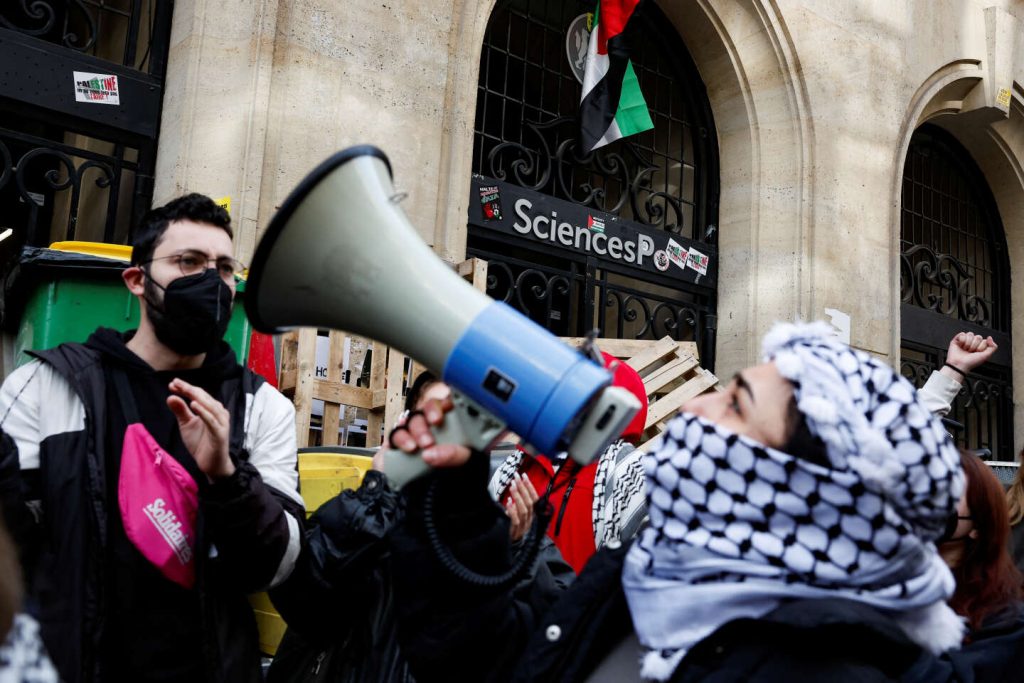In the midst of the European election campaign, France finds itself embroiled in political turmoil as tensions surrounding the Israeli-Palestinian conflict escalate. Activists and politicians are being summoned by the police for allegedly supporting terrorism, universities are cancelling events and political gatherings, and even prestigious institutions like Sciences Po in Paris are being occupied. The conflict has permeated every aspect of French society, sparking divisions and unrest that were already simmering beneath the surface.
On April 23rd, Mathilde Panot, the leader of La France insoumise (LFI) in the National Assembly, was called in for questioning by the police for alleged “apology of terrorism,” marking a culmination of two weeks during which the conflict in the Middle East has dominated the French social and political landscape. The fears of importing tensions from the conflict that were expressed by authorities after the massacres of October 7, 2023, seem to have become a reality, bringing about a period of intense turmoil and uncertainty in the country.
The situation intensified on April 16th when three organizations, including the Association des Palestiniens de France, filed a complaint against a Franco-Israeli soldier for alleged acts of torture and war crimes in Gaza. The complaint was based on a video circulating on Telegram showing a blindfolded Palestinian prisoner with lacerations on his bare back, while the soldier commented on the scene in a mocking manner. This incident led to potential legal action against several dual nationals serving in the Israeli army, with around fifty complaints expected to be filed.
The following week, Jean-Luc Mélenchon planned to hold a lecture on “current events in Palestine” at the University of Lille, alongside Franco-Palestinian jurist Rima Hassan, who was seventh on the LFI list for the European elections. However, the event was canceled due to controversy surrounding the conference poster, which some claimed omitted Israel from the map. Mélenchon’s comparison of the university president to a former Nazi official, Adolf Eichmann, drew widespread criticism, even from his political allies, who condemned his “excessive remarks” as damaging to the cause.
As the tensions surrounding the Israeli-Palestinian conflict continue to rise in France, the situation remains volatile and fraught with division and controversy. The government faces pressure to address the escalating crisis and protect the rights of activists and politicians who are being targeted for their views on the conflict. The events unfolding in the country reflect the complex and deeply entrenched nature of the conflict, highlighting the challenges of navigating such sensitive and polarizing issues in a diverse and politically charged society.


